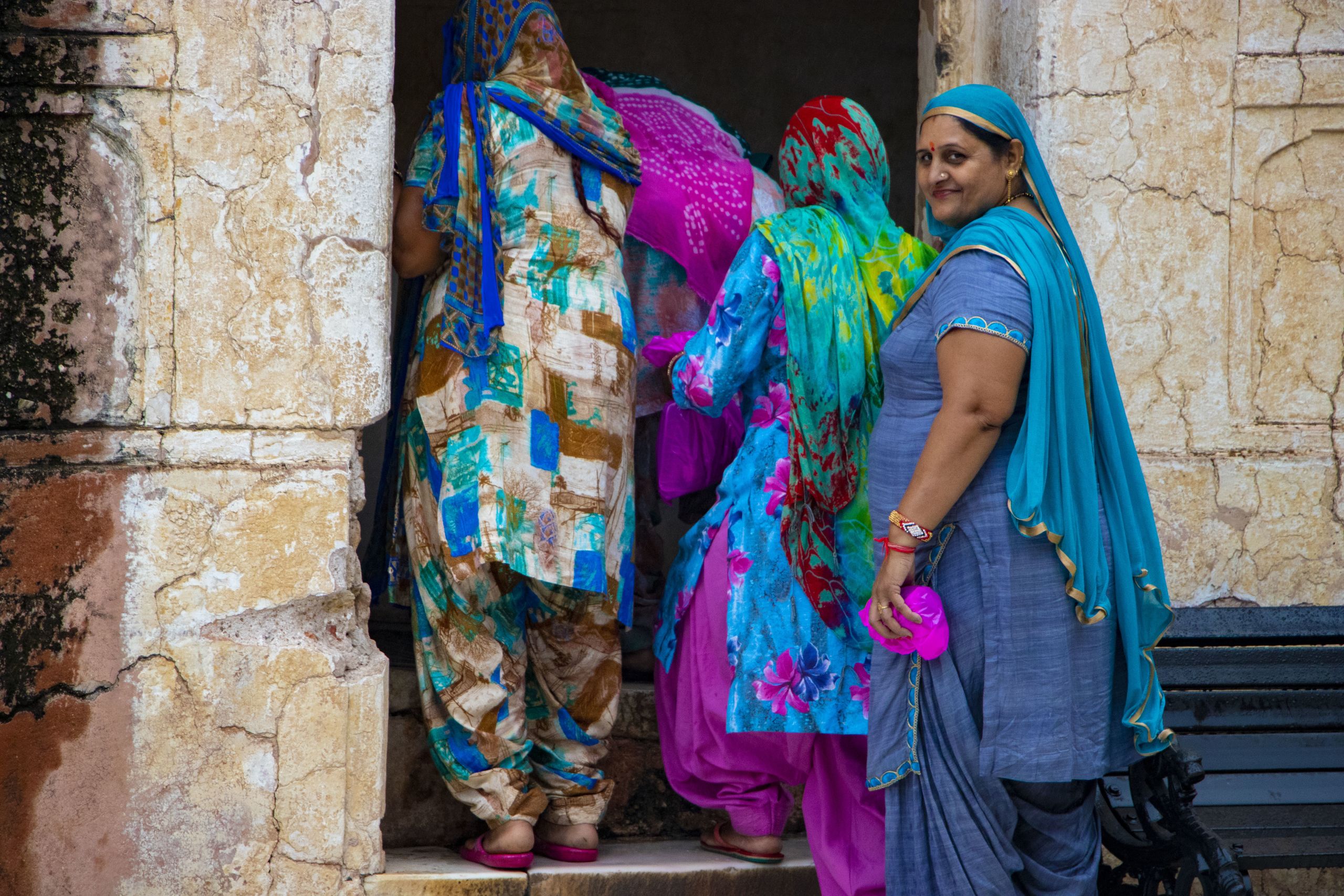Woven in the Wind
Discovering the fabrics and faces of Jaipur's Hawa Mahal Bazaar
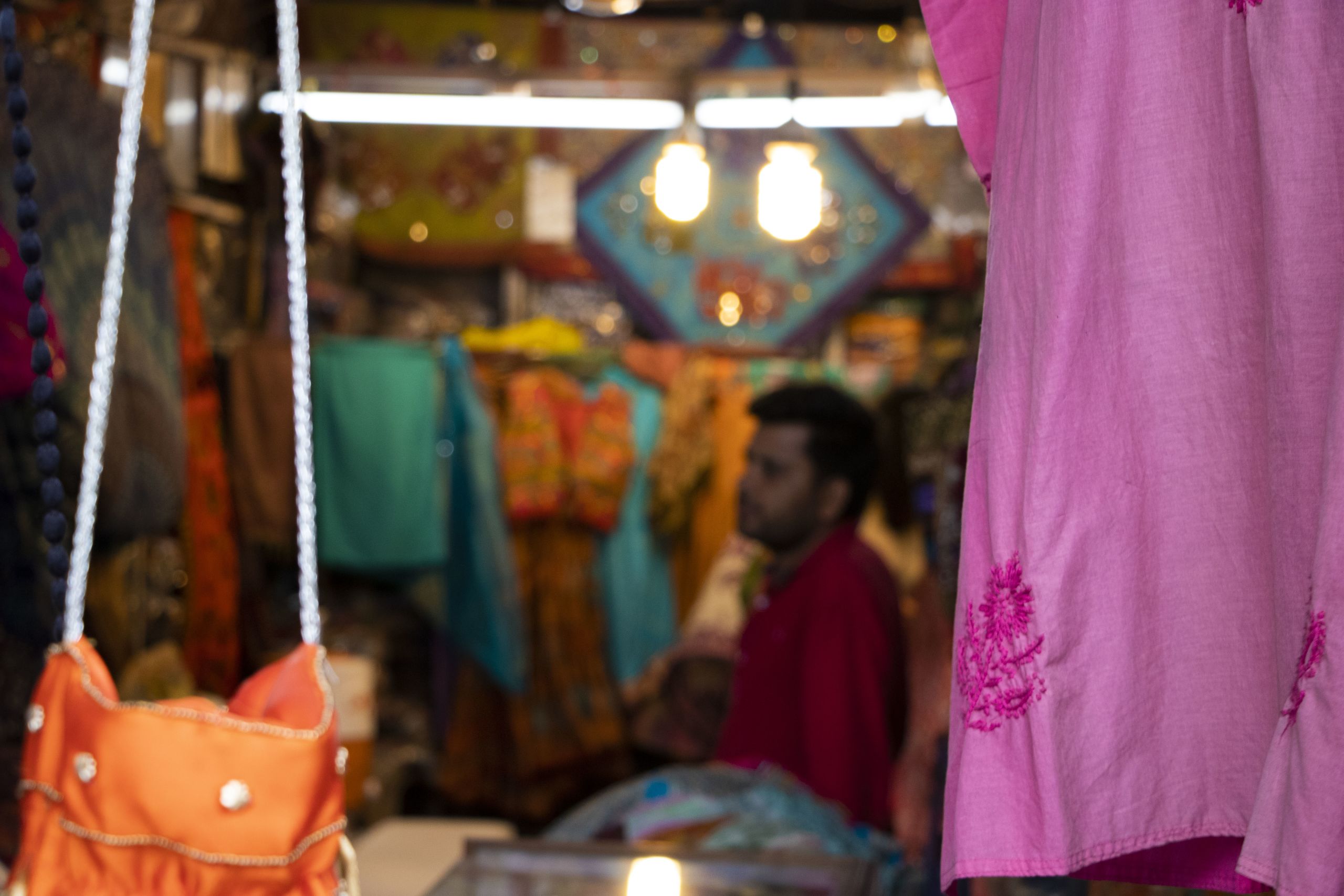
Beneath the towering crown of the Hawa Mahal Palace ('Palace of the Winds'), hundreds of stores and stalls line one after another - a procession of colour and awe.
This is the Hawa Mahal bazaar, and it is here that thousands of locals and tourists alike come each day to barter and to buy.
Morning at the Hawa Mahal Bazaar. The sun eases through the stained glass of the Hawa Mahal Palace as pedestrians begin to meander through the stores and stalls.
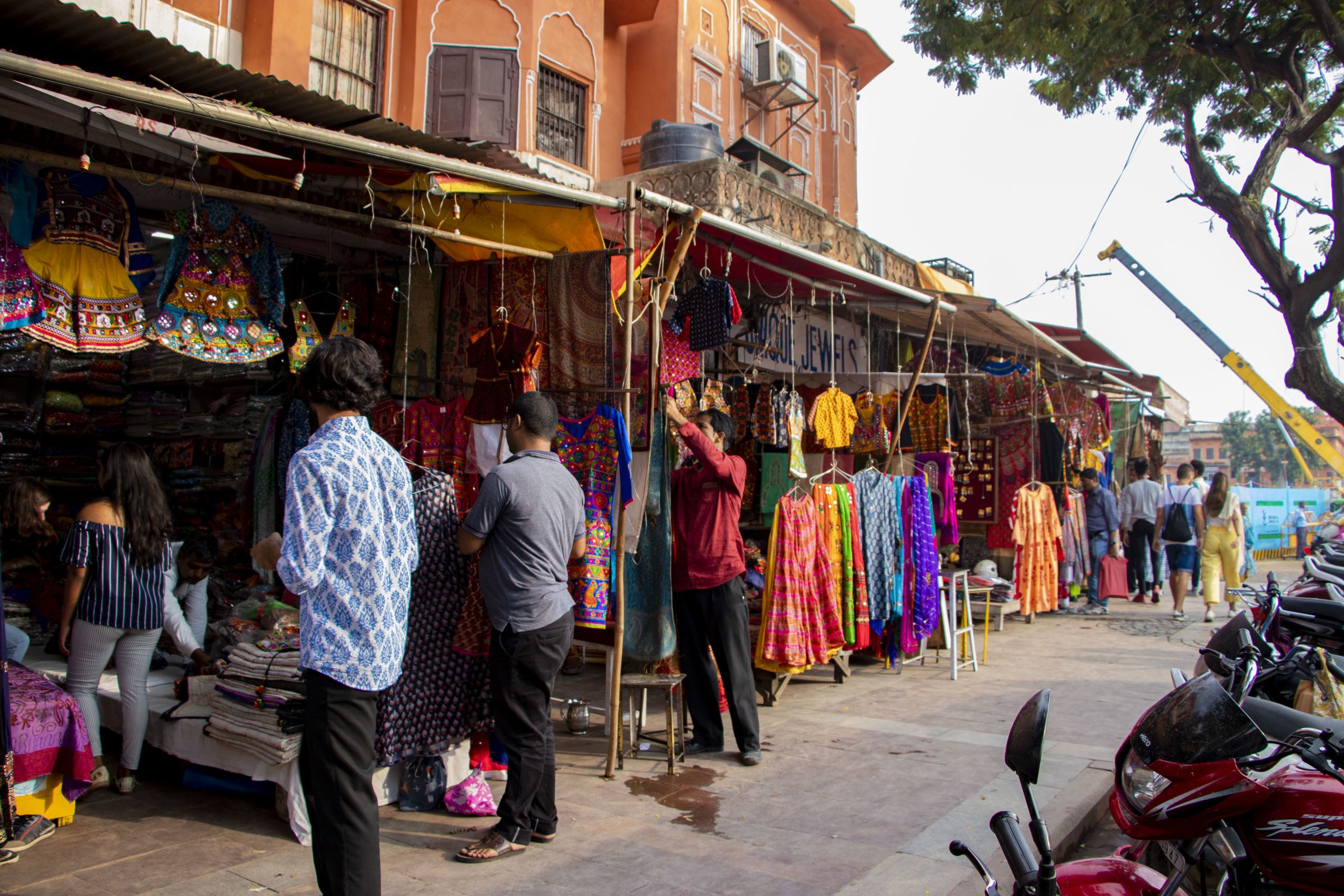
Competition is rampant and unforgiving here. Vendors must rise with the sun and adorn their storefronts with their most beautiful items long before any customers arrive.
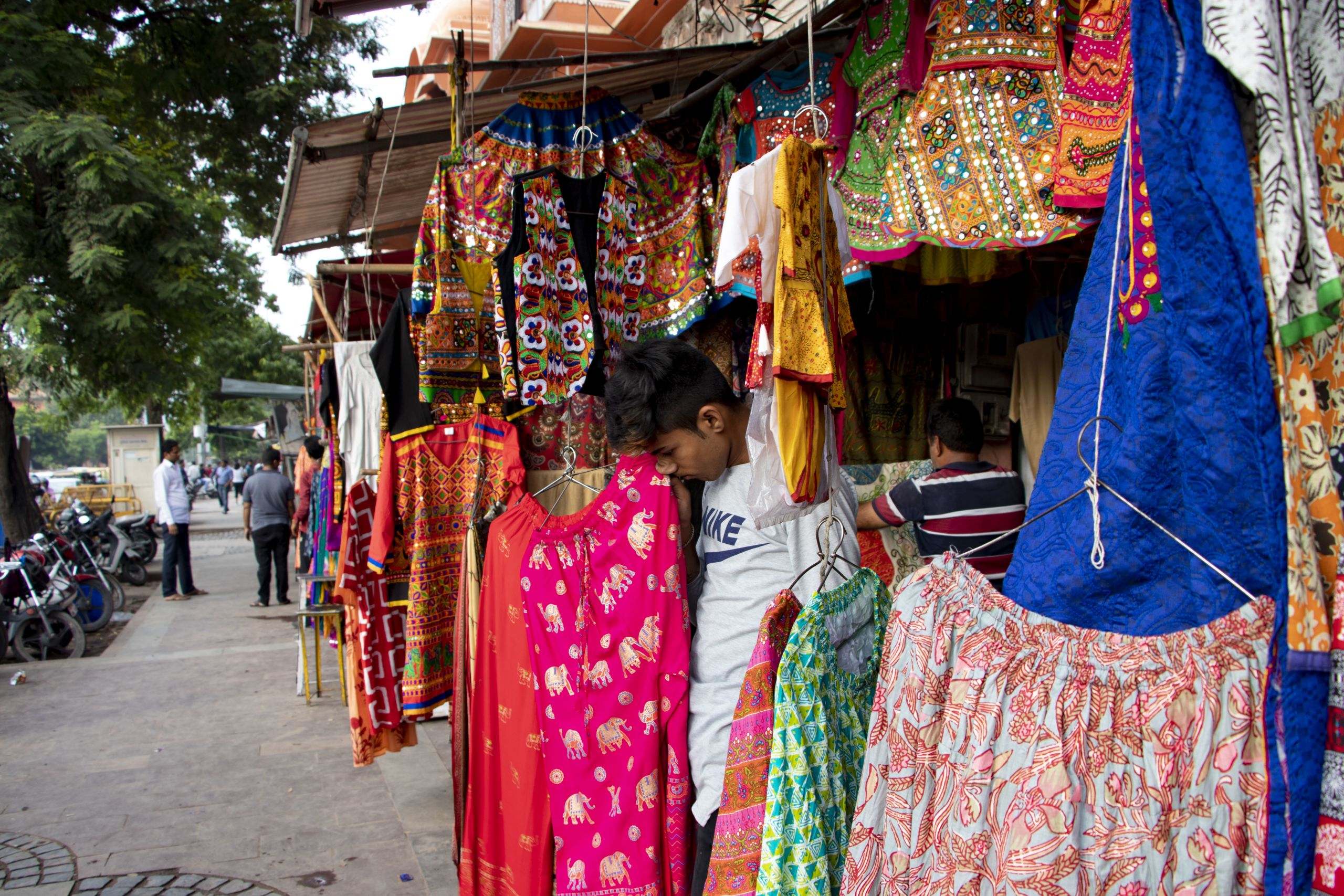
The last of the early morning breeze flutters the ribboned hemlines of these Indian hemlines.
Soon, footsteps will arrive.
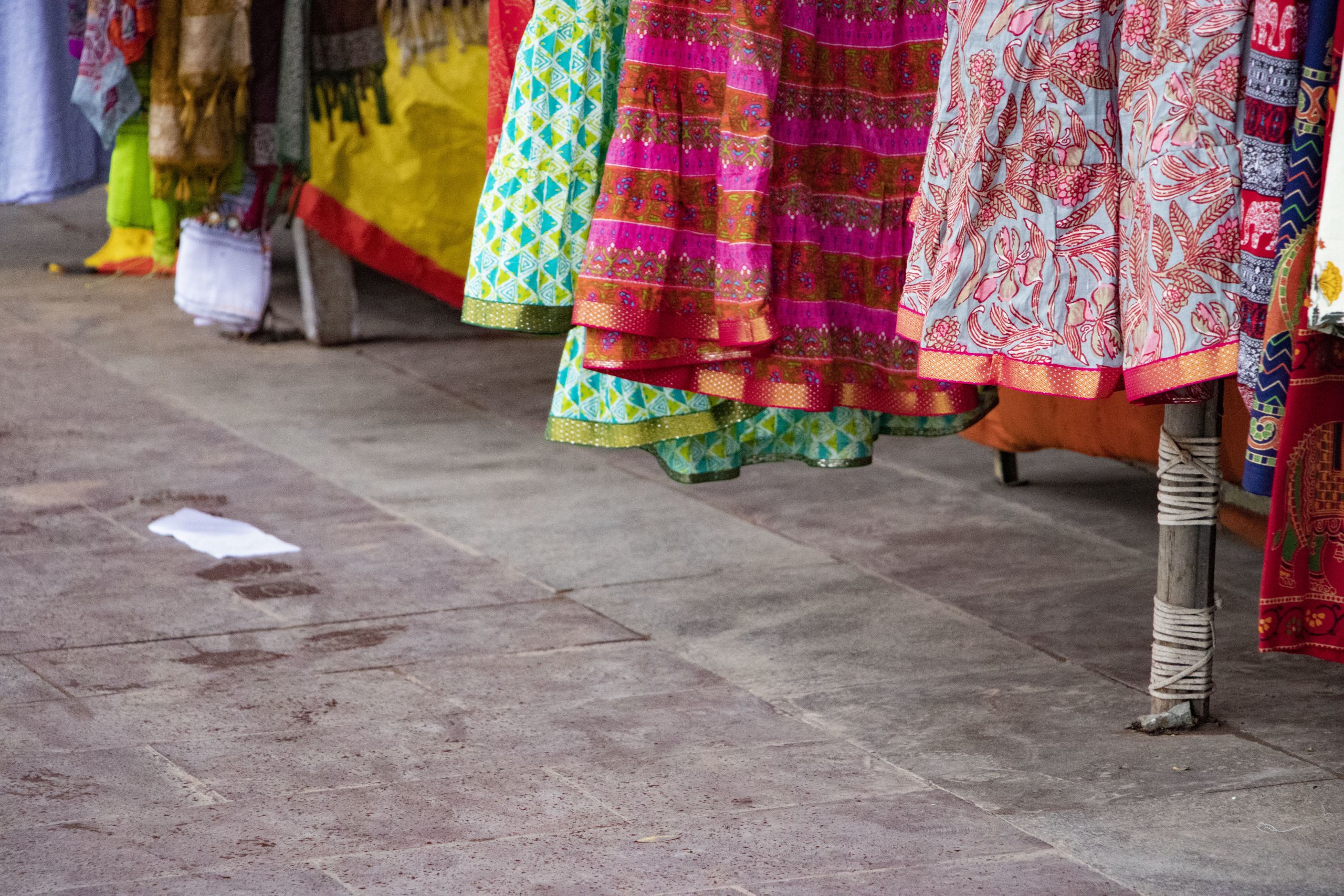
In I
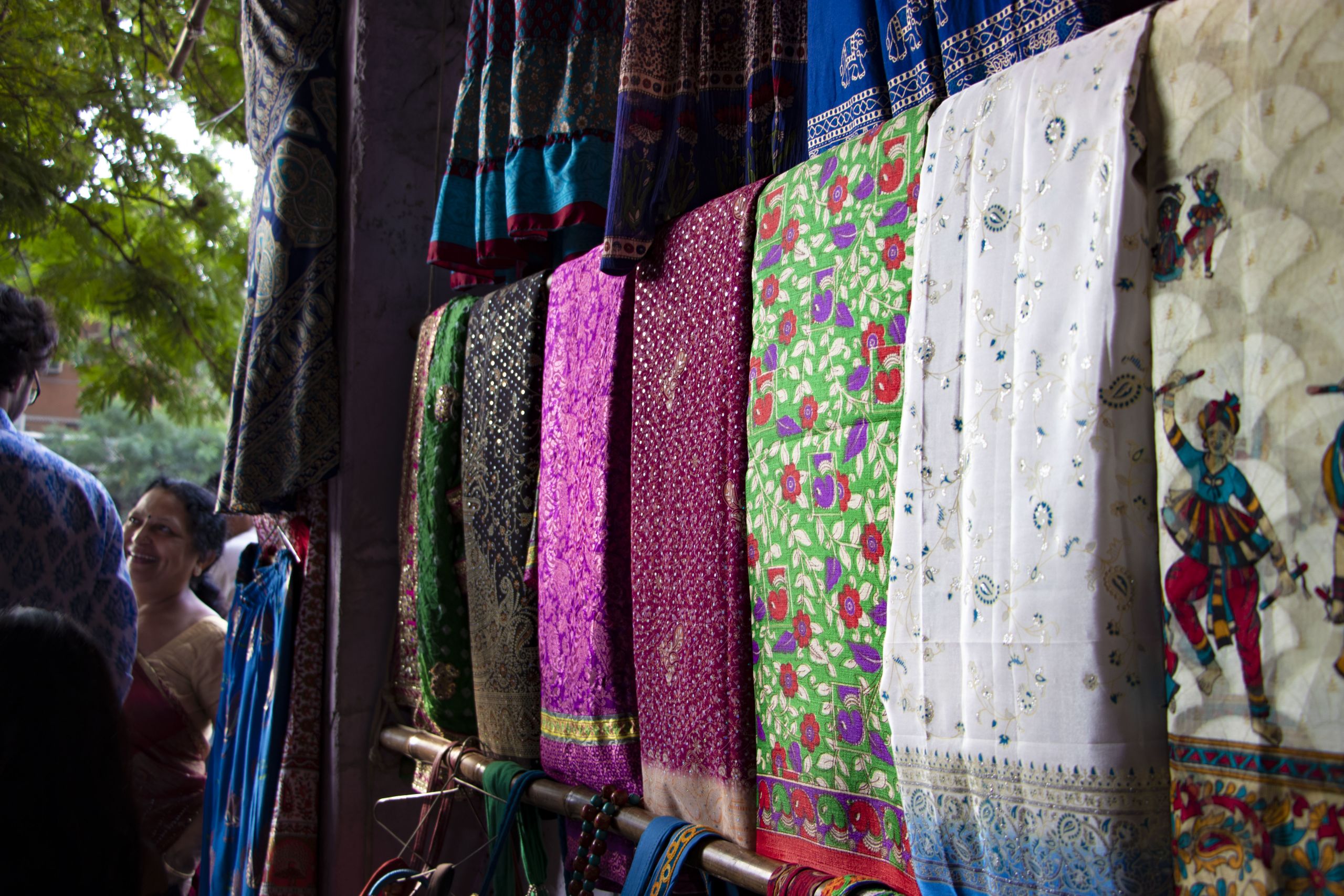
For Subhash Agarwal, the customer is king.
"This is my shop and I have worked here many years. We rely on finding the best products for our customers and giving them the best experience here in Jaipur."
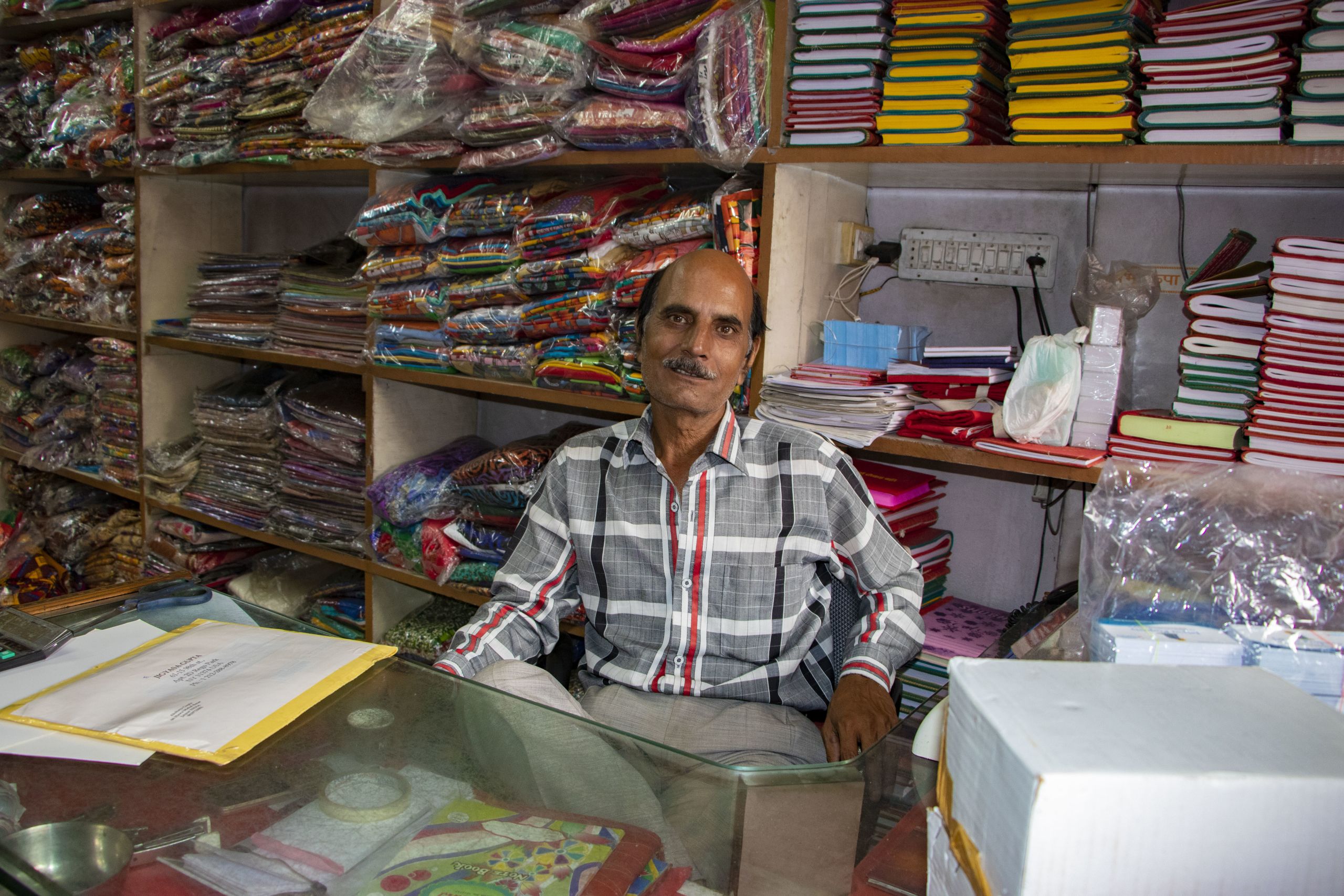
The craftsmanship of the garments in Jaipur are second-to-none. With the founders of the city patrons of the arts and crafts, they encouraged skilled craftsmen to settle here centuries ago, ensuring them secure livelihoods.
Generations down the line, the Pink City is still reaping the rewards of its founders' fancies.
In spite of westernisation, traditional hand-blocking techniques, applique, embroidery, vibrant vegetable dyes and creative motifs remain central to the Indian style and transform simple vests, sarees, dresses and shawls into highly-valued cultural keepsakes.
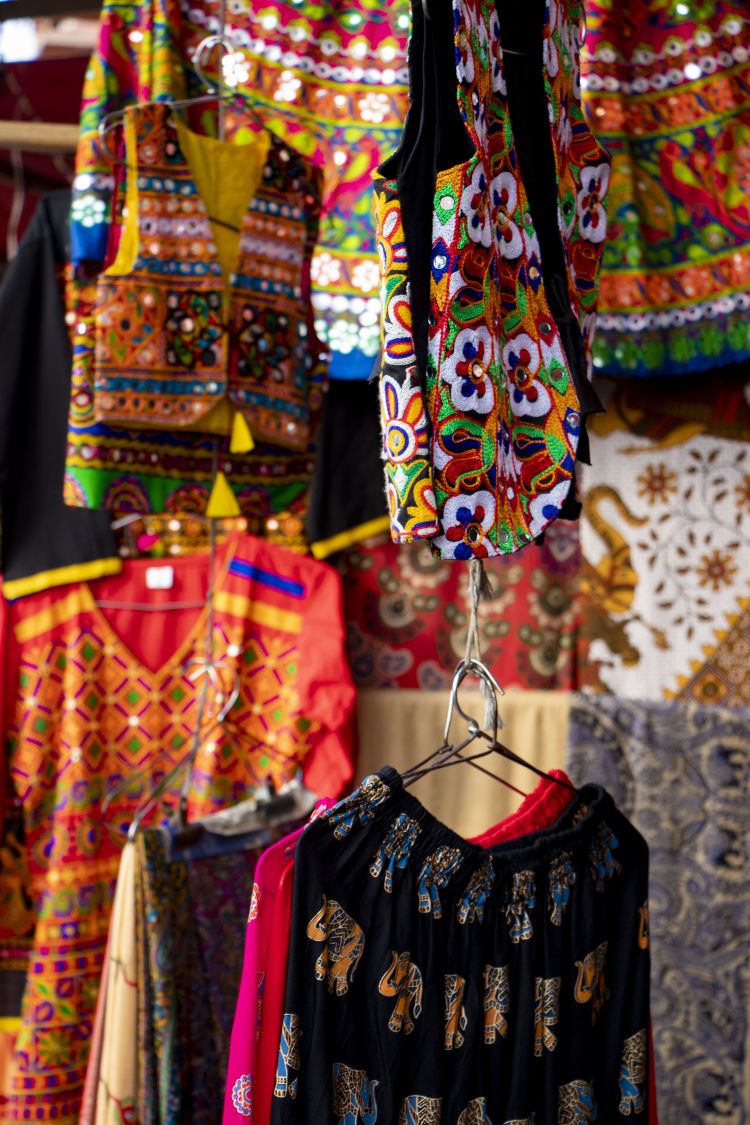
And these incredible garments are in the thousands at Hawa Mahal bazaar.
Here, a storage room of Subhash Agarwal's is bursting with colours and textures, and is restocked every month to keep up with the incessant demand.
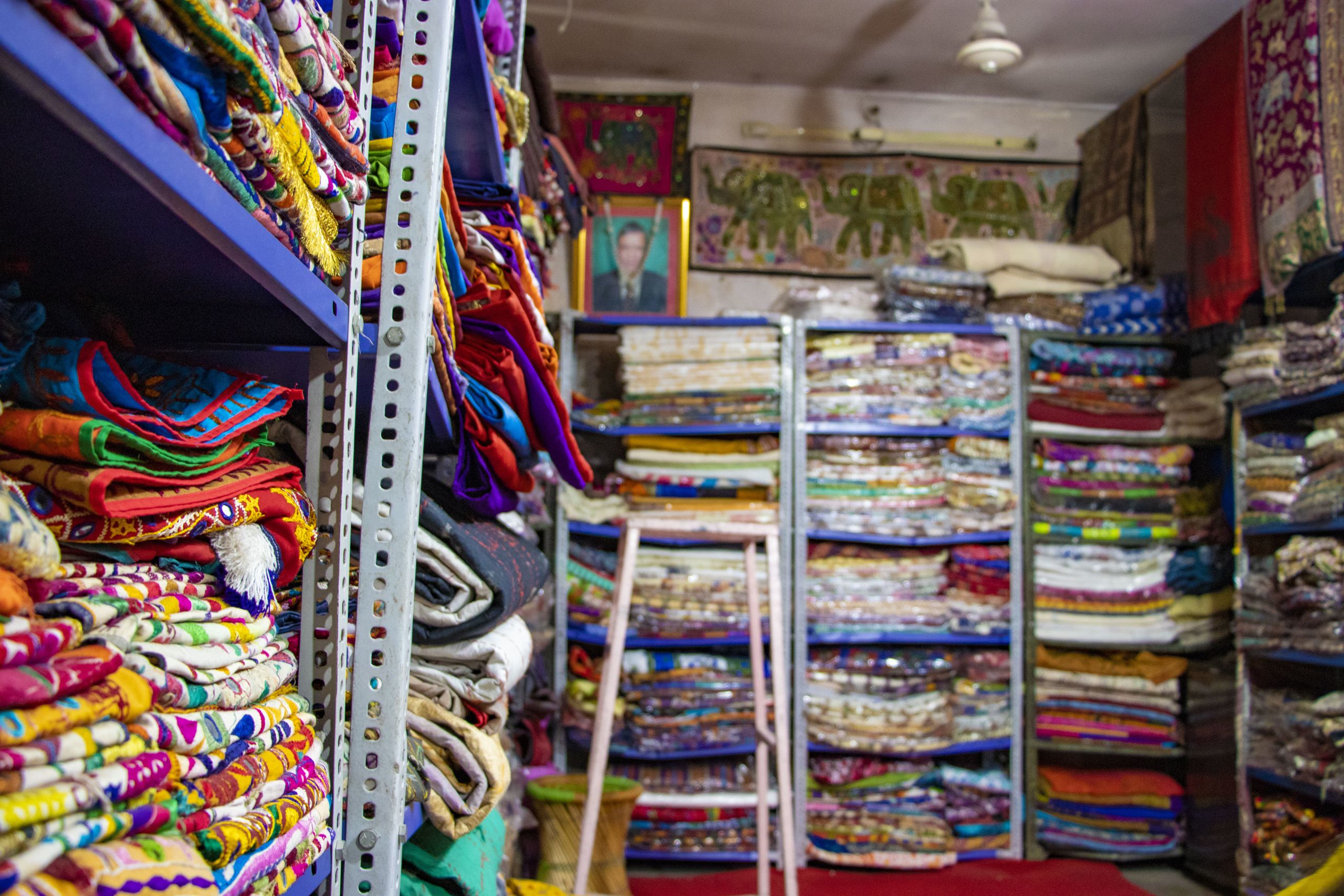
Virod Tekwani, owner of Amigos, inherited his store from his father, and is the youngest of a long line of Tekwani men who were esteemed merchants of Jaipur.
Virod said, "I love what I do. I am here almost every day. Nothing compares."
Men like these are using traditional techniques to meet contemporary tastes, and are ensuring the prosperity of Jaipur's tourism and textile industries.
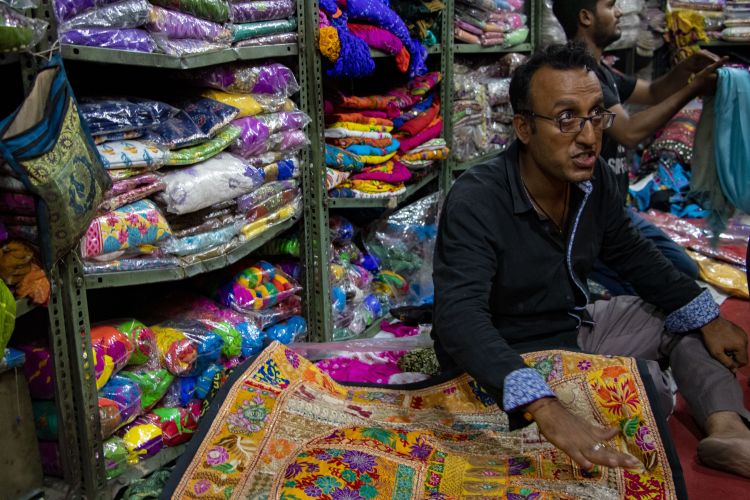
For the vast majority of the Rajasthan state, modernisation has passed over the rural sector.
Meaning, besides agriculture, craft is the largest employer in rural India.
City stores like Amigos pride themselves on sourcing their products from factories in severeal villages on the outskirts of Jaipur, who in turn, have sourced the fabric for their garments from factories even further away.
This decentralised collaboration creates a symbiotic relationship between merchand and maker, and provides year-round job security for craftsmen and women across the state.
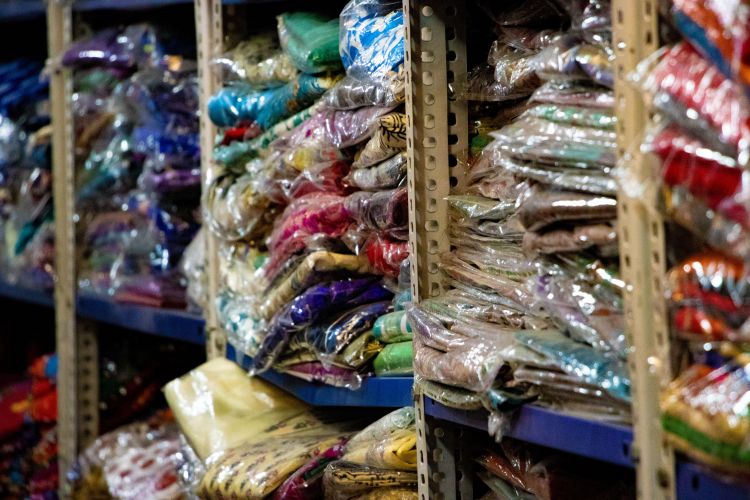
Below is a short slideshow of images that show the process of purchase at the Ellora Arts store of the Hawa Mahal bazaar.
First, Deepak Garg brings customers into his store, sits them down and begins pulling fabrics from his plethora of shelves, laying garments and fabrics on the floor in front of them with a smile.
His workers serve others in a secondary room to keep up with demand. After a whirlwind of customers, a pile of discarded fabrics sprawls chaotically across the mattresses.
At the counter, merchants will never fail to attempt to add more value to the sale, with memorabilia, notebooks, gifts and bags available within arm's reach.
And then, the cycle begins again. The discarded fabrics are folded and repackaged, the memorabilia returned to its glass cases and Deepak emerges on the street, once again with a smile, eager to find his next customer.
On the streets of the Hawa Mahal bazaar, you can meet the local customers of these stores, wearing casual to formal Indian garments that drape beautifully to combat the searing heat of India.
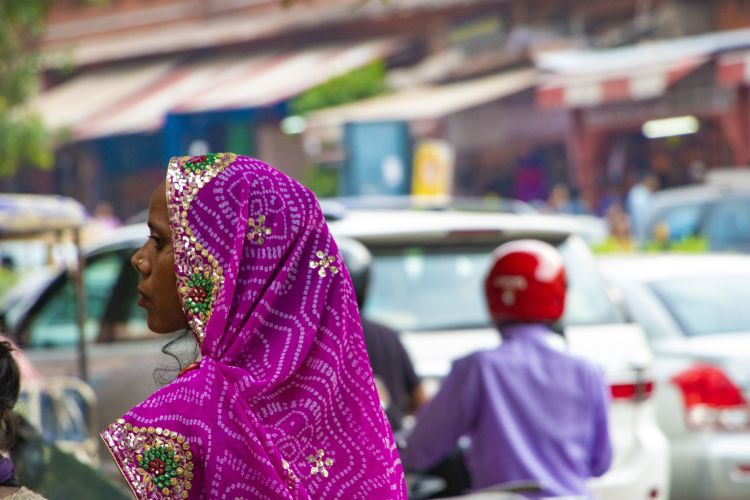
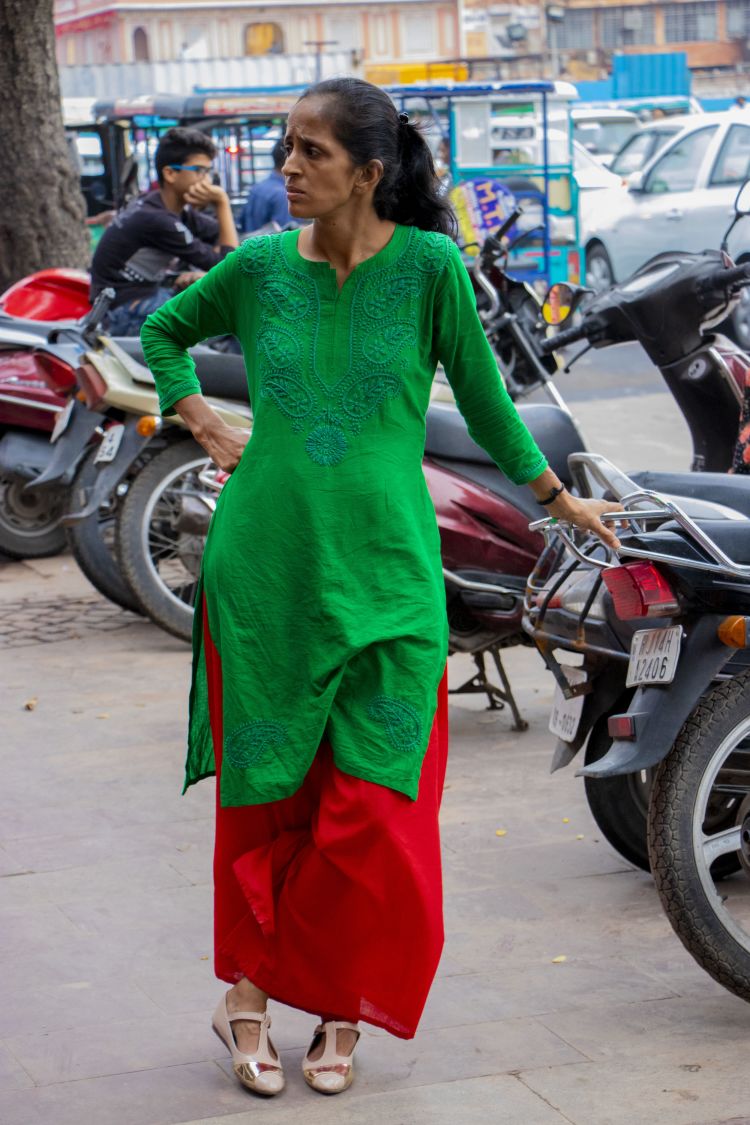
With a reputation for colour and quality, Indian fabrics and garments are in high demand across the world. The textile industry is set to tip US$ 250 billion of revenue by 2019 and accounts for four percent of India's GDP. The fabrics and garments are also transported via rickshaw to be exported worlwide.
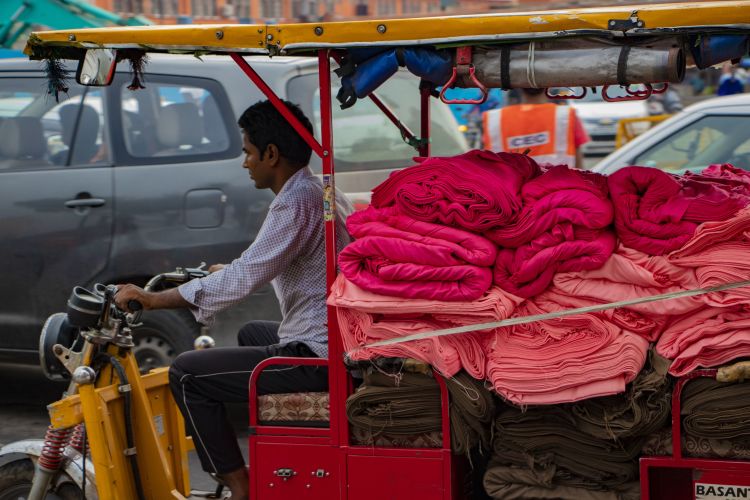
It is the ancestors of India that brought the textiles of the nation into the spotlight, and it is these older generations that will continue to pass down their fabrics of culture to their kin and show their value to the world.
